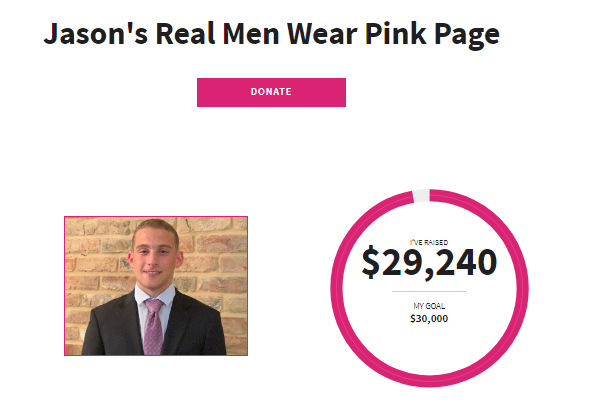Newborn Advantage Founder, Mindy Berkson, has a heart for breast cancer patients, and has helped many women explore surrogacy options after battling breast cancer.
“I have had many clients who had breast cancer in their 30s, and their cancer treatments stripped them of their fertility,” Berkson says. “Surrogacy can be a great option for people who want to have children after cancer.”
While breast cancer is rare for women in their 30s (it accounts for less than 5 percent of all cases), it does happen—and it’s also the most common cancer for women in this age range.2
When breast cancer affects women in their childbearing years, their fertility may be affected, but there are still many options to explore. Women who have not yet begun cancer treatments may be able to preserve their biological fertility by freezing an egg or embryo. If this is not possible, another option is egg donation. Through gestational surrogacy, using a woman’s own previously frozen egg, or a donated egg, women who lost their fertility to breast cancer can still become mothers.
“When breast cancer is diagnosed and treated early, many women are able to overcome it, and go on to live long, healthy lives,” Berkson says. “Surrogacy gives them back something that cancer could have taken away—the ability to become a mother. It’s very rewarding to see that dream come true through a successful surrogacy journey.”
As part of her advocacy for breast cancer awareness and research, Berkson serves on the board of the American Cancer Society’s Dallas Chapter. Her son, Jason Berkson, is a top fundraiser for the cause and an active member of American Cancer Society’s Real Women Wear Pink initiative. Last year, his fundraiser was the organization’s second-highest fundraiser in Dallas—and this year, with your support, it could be the first. Click here to visit Jason’s fundraising page and donate to this important cause.
“Every day, the American Cancer Society is saving more lives from breast cancer than ever before,” Jason says. “They’re helping people take steps to reduce their risk of breast cancer or find it early, when it’s easier to treat. They fund groundbreaking breast cancer research and they’re working to ensure access to mammograms for women who need them. By raising money and awareness through Real Men Wear Pink, I’m helping to save more lives from breast cancer.”
In addition to his online fundraiser, Jason is also selling T-shirts made by Puppymelons, a nonprofit organization created to raise funds for The American Society for the Prevention of Cruelty to Animals (ASPCA) and The Breast Cancer Research Foundation (BCRF). Proceed from this exclusive design will support the American Cancer Society and the Breast Cancer Research Foundation.
Donations to the American Cancer Society are always welcome—but Jason’s fundraiser ends on October 31, so give today, if you can.
“Your donation will help women across the U.S. get access to life-saving breast cancer screening and treatments—and it will also help advance research to improve the treatments currently available,” Mindy says. “This cause, like surrogacy, is dear to my heart—and I hope you’ll join us in supporting breast cancer awareness and research.”
1American Cancer Society. Breast Cancer Facts & Figures 2019-2020. Atlanta: American Cancer Society, Inc. 2019. https://www.cancer.org/content/dam/cancer-org/research/cancer-facts-and-statistics/breast-cancer-facts-and-figures/breast-cancer-facts-and-figures-2019-2020.pdf, accessed 15 Oct. 2020.
2 Healthline. Everything You Should Know About Breast Cancer in Your 20s and 30s. Healthline, 2020. https://www.healthline.com/health/breast-cancer/breast-cancer-20s-30s#takeaway, accessed 15 Oct. 2020.



